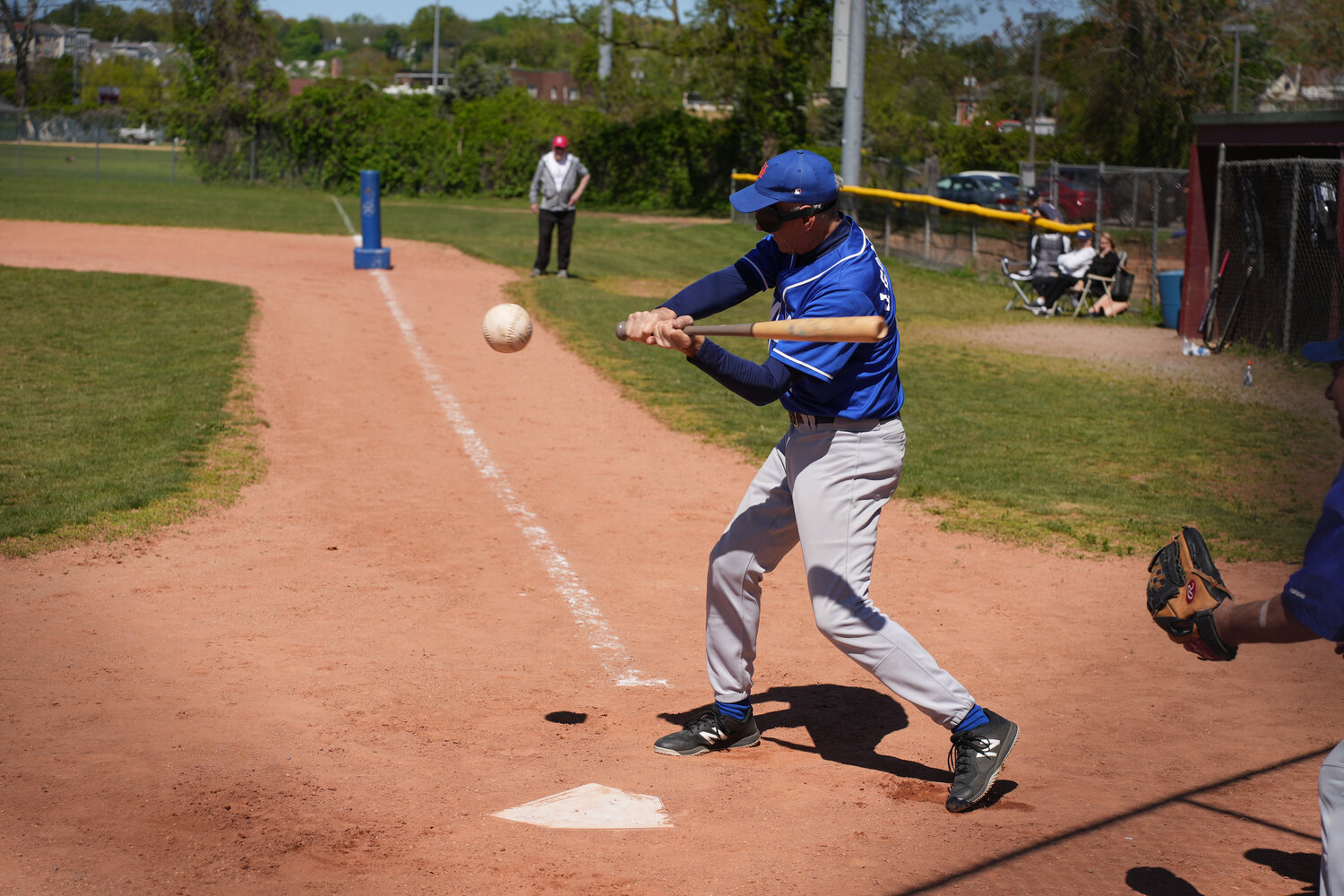Inspiring inclusivity in baseball
Amidst a bustling crowd and the familiar sights and sounds of John Maccarone Memorial City Stadium, a matchup will take place on May 11 between the Long Island Bombers and the Sunset Mets. However, what sets this game apart won't just be the skillful play on the field, but the remarkable individuals who are participating — all of which will be visually impaired.
In the world of beep baseball, where the game is played with adaptive equipment and rules to accommodate visually impaired athletes, every pitch, swing, and run takes on a whole new dimension. As a pitcher prepares to release the ball, a hush will fall over the crowd, and the only sound that will be heard is the steady beep emanating from the ball. With precise timing and skill, the batter connects, and then the field will come alive with the sound of footsteps as players make their way towards first base, guided by the buzzing of the bases.
The concept of beep baseball traces back to 1964 when Charles Fairbanks, a telephone company engineer in Colorado, first devised the idea. Since then, it has evolved into a beloved sport among visually impaired athletes, providing them with an opportunity to showcase their talents on the field. For the Bombers, the state's only visually impaired baseball team, beep baseball has become not just a game but a symbol of determination, resilience and community.
The journey of the Bombers has been marked by challenges and triumphs, with recruitment and facility access constant hurdles. However, with the unwavering support of individuals like John Alutto, manager of the Sunset Mets, and Peter Munda, a dedicated member of the Sea Cliff-Glen Head Lions Club, the Bombers have overcome these obstacles time and again.
Alutto, whose personal connection to the visually impaired community fueled his passion for supporting the team, emphasized the commitment required from players and their families while also highlighting the sheer love for the game that drives these athletes.
The Bombers, the only visually impaired baseball team in the state, first came to the attention of the Sunset Mets, a team for players 52 and older, when Alutto, of Oyster Bay, was playing in a tournament in Florida in 2021. Alutto, who operates an online baseball card and memorabilia business, overheard players talking about a “beep ball” team in Rockville Center.
Alutto was intrigued on a personal level, since his friend Joe Esposito has a blind son.
“His son is a rookie on the team. I got to see them practice three years ago, and they’re just phenomenal.” Alutto said. “These guys just love baseball.”
Most of the players on the Bombers are sightless. Those with better vision are required to wear a blindfold during gameplay to even the playing field. Although the game is a source of inspiration and an outlet for committed players, recruitment isn’t easy.
“It’s very difficult to get players, especially when they’re young people and the parents resist,” Alutto said. “It’s a big commitment. Someone has to drive them to practice too.”
At the heart of the Bombers' story lies the legacy of Ted Fass, a visionary leader and co-founder of the team. Despite losing his sight at a young age due to a tumor, Fass remained steadfast in his love for baseball and his commitment to creating opportunities for visually impaired individuals to participate in the sport.
It was in 1998, alongside his wife Gail and fellow advocate Steve Guerra, that Fass established the Long Island Bombers, laying the foundation for what would become a beacon of hope and inspiration for the blind community. Fass, a longtime Rockville Centre resident, died on Sept. 11, 2023, at the age of 71.
Throughout his tenure as the team manager and executive director, Fass dedicated himself to mentoring players, fundraising for the team's activities, and organizing exhibition games with renowned baseball teams such as the New York Yankees and the Long Island Ducks. Aluto said Fass was “the heart and soul of the team,” and his death left a void in the Bombers' community, but his legacy continues to live on through the indelible impact he made on countless lives.

 80.0°,
Partly Cloudy
80.0°,
Partly Cloudy 




